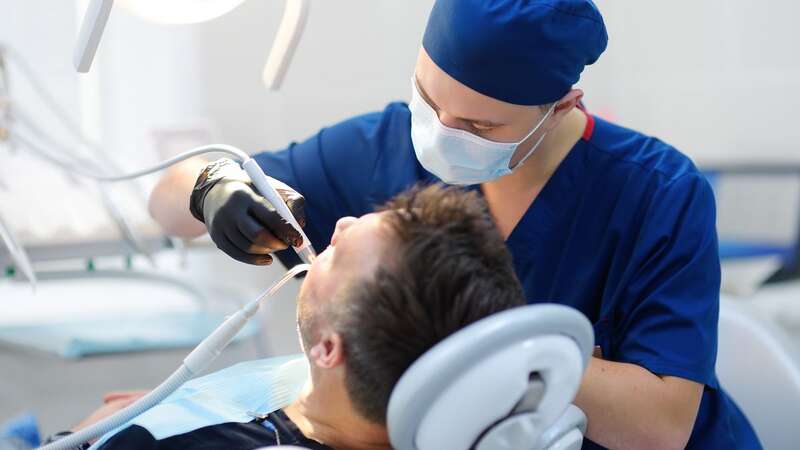A dentist is flagging the essential need for people to be acquainted with the indications of gum disease as it's often irreversible once established.
Dr Chanpreet Kalsi, a General Dentist at Hermes London Dental Clinic, pointed out that folks often neglect their oral health, but "perhaps we should". Dr Kalsi highlighted researches from the USA and the UK stipulating that a certain range of gum disease affects half to almost all adults, with nearly 50 per cent of UK adults suffering from non-reversible gum disease. The latest UK Adult Dental Health Survey, conducted in 2009, revealed only 17 per cent of adults possessed no gum disease and perfectly healthy gums.
The likelihood is high that many might be living with a condition that will exacerbate if left untreated, reports Bristol Live. Thereupon, what steps to take, what symptoms to look for, and knowing when it's time to see your dentist?
Gum disease signs
Bleeding during teeth brushing - Should you consistently notice blood while cleaning your teeth, this might be your body alerting you of a problem.
Inflamed red and painful gums - We seldom make an effort to examine our gums. Give them a glance. If they appear inflamed and tender or don't cause discomfort nonetheless, take heed.
 Mum wins £25,000 after years of dental treatments left her with almost no teeth
Mum wins £25,000 after years of dental treatments left her with almost no teeth
Persisting bad breath - This prompts the age-old inquiry of whether you can perceive your own breath, putting that aside, seek remarks from your close ones.
Wobbly teeth - As gum disease takes hold it slowly loosens your skull's grip on your teeth. If your teeth are feeling "loose", then do not hesitate to book an emergency appointment.
Gum disease gets a foothold when your toothbrush is no longer able to reach the muck between your teeth and your gums. Over time these develop into "pockets" and the depth of these pockets is measured routinely by your dentist.
How to treat gum disease
Dr Kalsi said: "The best way to treat gum disease is to have a highly disciplined brushing regime that makes every possible effort to get into all of the nooks and crannies in between your teeth and in between your teeth and your gums. This is the best treatment and preventative action that you can take.
"Dentists can, of course, help too, but without your own personal tooth brushing regime they may be reluctant as any work they do to help will be less effective without your own commitment to exemplary brushing. Most people living with gum disease use specialist 'interdental brushes' that are small curved brushes designed to get into all of the hard-to-reach areas."
Read more similar news:
Comments:
comments powered by Disqus

































